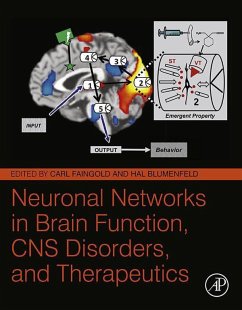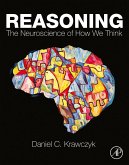With chapters authored by experts in each topic, this book advances the understanding of:
- How the brain carries out important tasks via networks
- How these networks interact in normal brain function
- Major mechanisms that control network function
- The interaction of the normal networks to produce more complex behaviors
- How brain disorders can result from abnormal interactions
- How therapy of disorders can be advanced through this network approach
This book will benefit neuroscience researchers and graduate students with an interest in networks, as well as clinicians in neuroscience, pharmacology, and psychiatry dealing with neurobiological disorders.
- Utilizes perspectives and tools from various neuroscience subdisciplines (cellular, systems, physiologic), making the volume broadly relevant
- Chapters explore normal network function and control mechanisms, with an eye to improving therapies for brain disorders
- Reflects predominant disciplinary shift from an anatomical to a functional perspective of the brain
- Edited work with chapters authored by leaders in the field around the globe - the broadest, most expert coverage available
Dieser Download kann aus rechtlichen Gründen nur mit Rechnungsadresse in A, B, BG, CY, CZ, D, DK, EW, E, FIN, F, GR, HR, H, IRL, I, LT, L, LR, M, NL, PL, P, R, S, SLO, SK ausgeliefert werden.
"This volume, edited by Carl Faingold and Hal Blumenfeld, focuses on neural networks - what they are, how we study them, and why they are important for understanding normal brain function and treating neuropathologies. The topic is timely and important. Indeed, there is a wealth of information (and a large number of ongoing studies) that deals with the identification and understanding of brain networks, and this volume attempts to bring much of that information together in a coherent package. Of particular importance is the concept of "emergent properties" of a network - characteristics of a network's function that are not observed in the member elements and may not be predictable simply by looking at the members of the network.research on network modulation/disruption will contribute powerful new tools to our therapeutic armamentarium." --Philip A. Schwartzkroin, Ph.D., Professor emeritus, Department of Neurological Surgery University of California, Davis
"Many of the chapters provide outstanding thoughtful, timely, and information-packed reviews of interesting topics.this book will be useful and important to anyone interested in mammalian systems neurobiology, and especially to those to whom basic science/clinical implications matter deeply." --Roger D. Traub, M.D., Dept. Physical Sciences, IBM T.J. Watson Research Center, Yorktown Heights, NY









